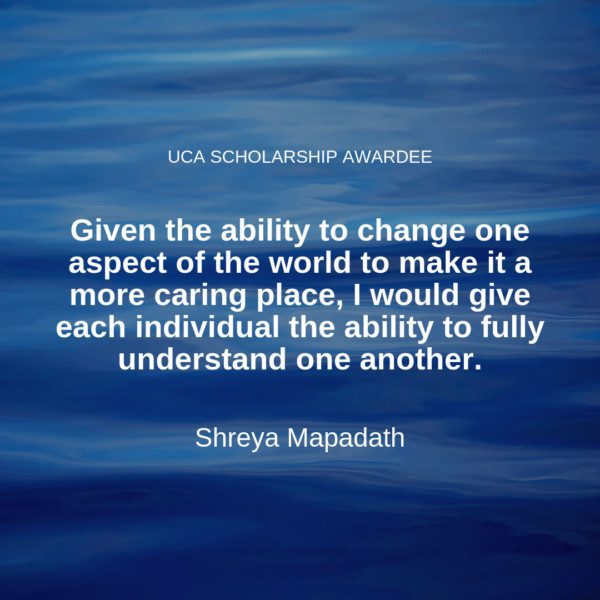 Our first instinct when faced with the question of how we can make the world a more caring place might be to propose ideas for a grandiose philanthropy project or a charity foundation. These plans certainly have their place in bettering the world, but when it comes to goal of inciting kindness and concern for others, the answer needn’t necessarily be so monumental.
Our first instinct when faced with the question of how we can make the world a more caring place might be to propose ideas for a grandiose philanthropy project or a charity foundation. These plans certainly have their place in bettering the world, but when it comes to goal of inciting kindness and concern for others, the answer needn’t necessarily be so monumental.
Given the ability to change one aspect of the world to make it a more caring place, I would give each individual the ability to fully understand one another.
If we were to examine the power struggles existing all throughout history, we would discern a cause that lies far beneath the surface of those such as racism and greed—one that is deceptively simple: a mutual lack of understanding. From humanity’s bloodiest wars to its most severe humanitarian crises, the vast majority of conflict between people can be boiled down to the refusal, or perhaps inability, of opposing parties to comprehend each other’s differing perspectives.
But why should merely understanding other people’s view of the world have any meaningful impact on our interactions with them?
When I had the incredible opportunity to stay with a host family in South Korea last summer, I experienced a profound realization. Coming from the radically different cultures of Korea and America, my host parents and I had endless questions about each other’s thoughts on various issues and once landed on the topic of same-sex marriage. Upon learning that we had opposing opinions on the matter, I became curious as to what might have caused each of us to think the way we did. It soon became obvious to me that we had lived such different lives and that our individual experiences paired with the way we’d been brought up largely shaped our views.
This particular exchange with my host family taught me that it doesn’t make sense to observe other people simply through my own perspective; I have to actively seek to understand what part of their lives has molded their beliefs today.
By understanding not just the meaning of someone’s words, but also the context from which those words come, the reasons behind our clashing opinions become much more apparent. We often like to operate under the illusion that we exist as individuals independent of our surroundings, but in reality, we are all products of it. I am of the firm belief that when we are able to see people as the fusion of countless elements, we can truly begin to both understand and appreciate their complexity, and ultimately, care for them. It is only after we can see past the superficial divides that exist between others and ourselves that we can realize every human is at their core just that: a human being.
Setting out to create a more caring world may sound like a daunting task, but just like every other change we wish to see in the world, it begins with ourselves. When we make the effort to educate ourselves on the unique contexts other people live in and connect with them on a deeper level, caring is a natural outcome.
